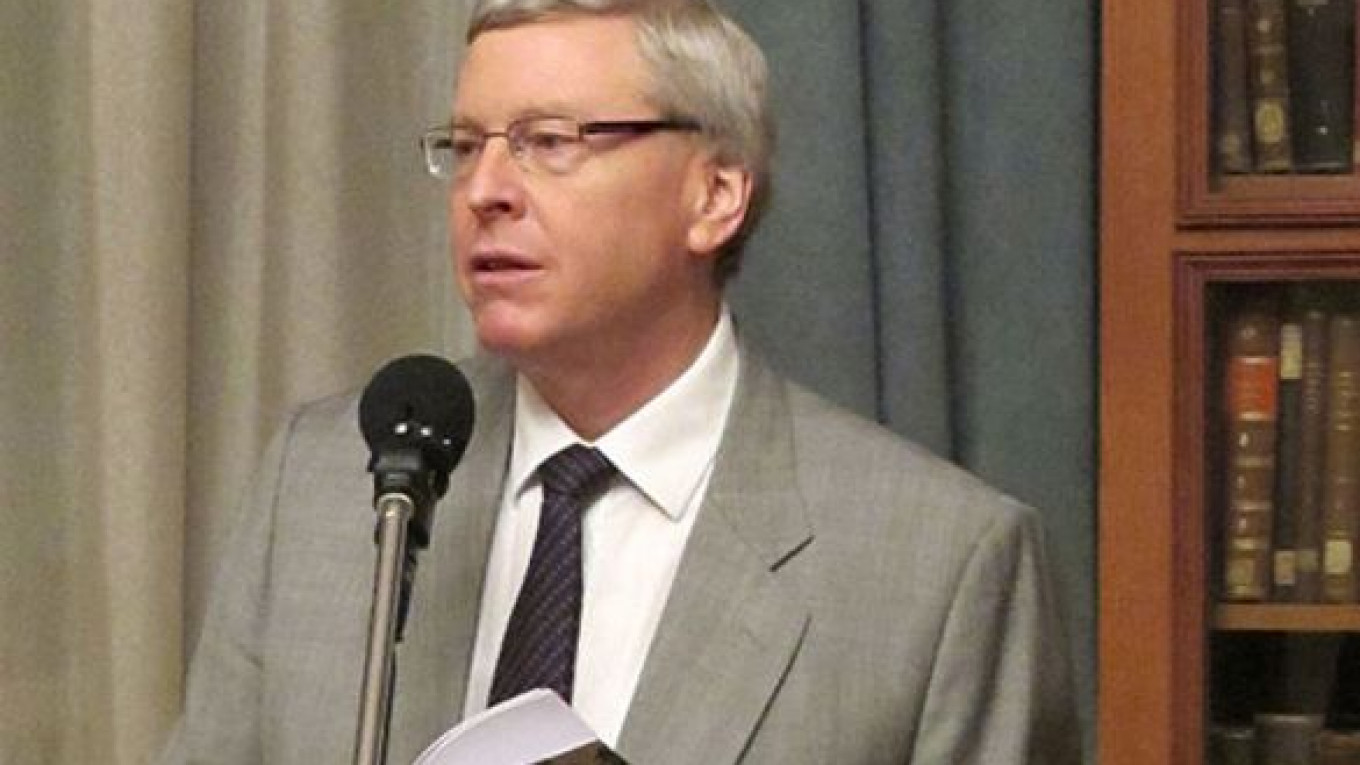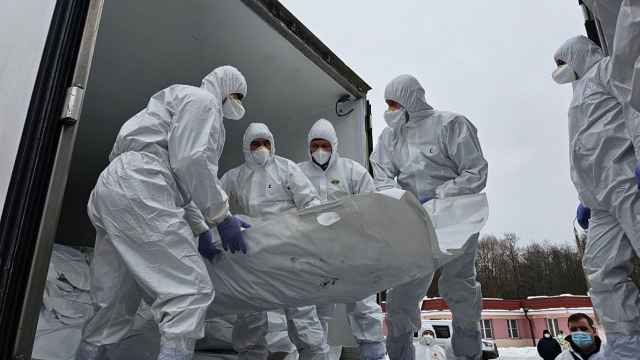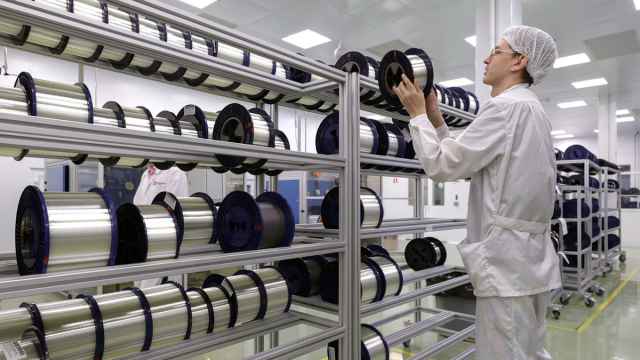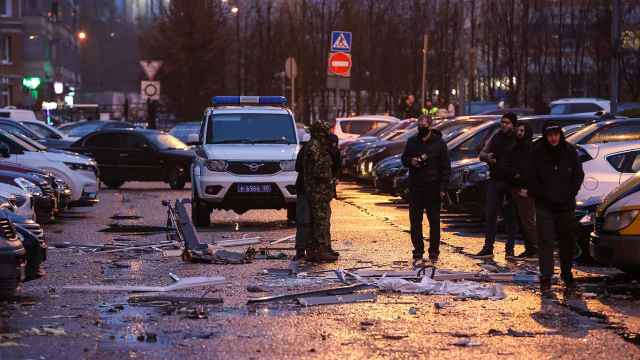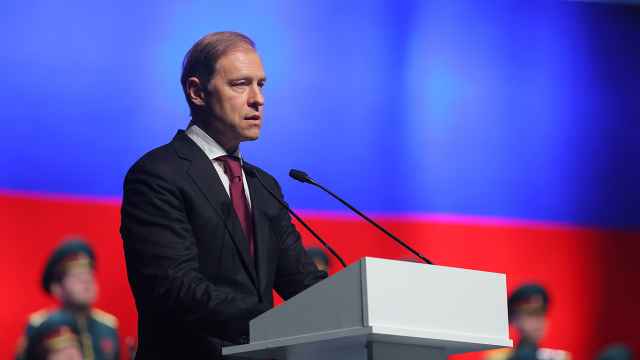As with most natives of the Emerald Isle, the upcoming holiday is a family event for him. The only difference is that attendance is a professional duty for McDonagh, who has served as Ireland's ambassador to Russia since 2009.
As part of the holiday celebrations, Moscow will host an Irish festival, a parade in Gorky Park, and a church service, which McDonagh plans to attend.
Education
Bachelor's and master's degrees from Balliol College, Oxford
Work experience
2009 to present — Irish Ambassador to the Russian Federation, Kazakhstan and the countries of Central Asia
2007 — Irish Ambassador to Finland
2004 — Irish Ambassador to the Holy See
1999 — Irish Ambassador to India, Bangladesh, Sri Lanka, and Nepal
1994 — Ireland's Diplomatic Mission at the Embassy of London, deputy head
1991 — Department of Foreign Affairs, Ireland, "European Correspondent"
1984 — Ireland's Delegation at the Stockholm Conference, deputy head
1986 — Department of Foreign Affairs, Ireland, press officer
1989 — Seconded to the European Political Cooperation Secretariat, Brussels
1979 — Permanent Mission to the United Nations, Geneva
1976 — Department of Foreign Affairs, Ireland, Private Secretary to the Secretary-General
1975 — Department of Foreign Affairs, Ireland, Third Secretary
Favorite book: "The Great Gatsby" by Francis Scott Fitzgerald, 1925
Reading now: "Why Nations Fail: The Origins of Power, Prosperity and Poverty" by James A. Robinson and Kamer Daron Acemoglu
Movie pick: "High Noon" (1952), directed by Fred Zinnemann
Favorite Moscow restaurant: My local pizzeria
Weekend getaway destination: St. Petersburg
"It will be a very busy weekend," he said.
McDonagh said a love of celebration is something that Russians and Irish have in common: "Both Russians and Irish like singing and reciting poetry. … This tradition has disappeared in many other countries because people spend so much time on the Internet or watching TV; they don't learn songs themselves."
The ambassador, whose colorful manner of speaking betrays a romantic spirit, is a perfect example of the soulful affinity of the two countries.
The author of several books of his own collected verses, McDonagh started writing poems as a child to recite them on family occasions, in what later became a lifetime hobby.
"We used to sing songs and recite our favorite poems, and it was just a small step to try to write something by myself," he said. "We didn't really make a big distinction between formal poetry and professional music and the poetry and music we made ourselves. I just kept going little by little over the years."
But at his office in the city center the poet gives way to the official, and McDonagh morphs into a well-organized diplomat.
"At the work place you're part of a team, you have to be organized and disciplined," he said, adding that this strategy never works for poets, since a good poem is a spontaneous fruit of inspiration, rather than self-discipline.
However, McDonagh, who writes mostly about love and public affairs, as well as the art of poetry itself, acknowledged that his hobby helps him in his everyday work.
"When you deal with public affairs and policy issues the most important thing is getting perspective and having a sense of what really matters. And if you're interested in literature it gives you perspective," he said.
This interview has been edited for length and clarity.
Q: What are the prospects for the development of Irish business in Russia?
A: The prospects are very good and they are supported by the figures. Mutual trade with Russia is growing very rapidly; it has more than doubled since the years of the 2008 financial crisis, and last year it went up by 20 percent to reach almost 2 billion euros.
Other fields of potential growth are research and development and travel. We are trying to encourage more tourists in both directions; we are trying to encourage students.
There are very few direct flights between Moscow and Ireland, and we've been trying in different ways to involve airlines and examine different options. If we have more direct flight between Ireland and Russia that would help develop tourism and help business as well.
Q: What could you advise a foreign investor thinking about entering Russia?
A: I think the most important thing is that they have a long-term approach. You don't come for a weekend and expect miracle to happen, you should have a strategy for the long term. Maintaining good personal relations is also very important. You can make friends in Russia. It's important not just to see a person as a contact but to have a personal touch.
Q: What do you see as your biggest personal achievement during your time here?
A: I think the development of mutual trade is the first thing to mention. I believe I created a base for it by working closely with colleagues from the Russian Foreign Ministry and the Economic Development Ministry, so that when our foreign minister, Eamon Gilmore, came to Russia in 2011 we were able to inaugurate a new economic commission, a group including officials from our countries' governments. It had existed previously, but in 2011 we put its work on a new basis, since we set up a much more detailed agenda. And I think having that agenda in place between the two governments underpinned trade relations.
I also thing that our political dialogue with Russia has deepened over the last few years, and our cultural relations are thriving as well.
Q: Could you describe a particular challenge you encountered during your time here, and how did you resolve it?
A: There's an issue with the recognition of opportunities in Russia. I think the visit of Irish President Mary McAleese in 2010 was the overall highlight of my time here. When the president came she had lots of television coverage and a big agenda, and that helped to make far more people in Ireland to be aware of the possibilities in Russia.
Q: What was your first impression of Moscow when you came?
A: My first impression of Moscow when I came was that it is very big. It's one of the world's largest metropolises, like New York, and I like that you can find all kinds of cultural activities: music, theater, museums.
Q: Who or what inspires you in everyday life?
A: Nadezhda Mandelshtam, poet Osip Mandelshtam's wife, had a lovely expression saying, "man carves a piece of wood — and out of it comes God." The idea seems to be that if you work with something small, it has a large meaning. And that idea is quite important to me. You can't just narrow life down to pleasure and work, but you've got to look for some other meaning.
Contact the author at [email protected]
A Message from The Moscow Times:
Dear readers,
We are facing unprecedented challenges. Russia's Prosecutor General's Office has designated The Moscow Times as an "undesirable" organization, criminalizing our work and putting our staff at risk of prosecution. This follows our earlier unjust labeling as a "foreign agent."
These actions are direct attempts to silence independent journalism in Russia. The authorities claim our work "discredits the decisions of the Russian leadership." We see things differently: we strive to provide accurate, unbiased reporting on Russia.
We, the journalists of The Moscow Times, refuse to be silenced. But to continue our work, we need your help.
Your support, no matter how small, makes a world of difference. If you can, please support us monthly starting from just $2. It's quick to set up, and every contribution makes a significant impact.
By supporting The Moscow Times, you're defending open, independent journalism in the face of repression. Thank you for standing with us.
Remind me later.


